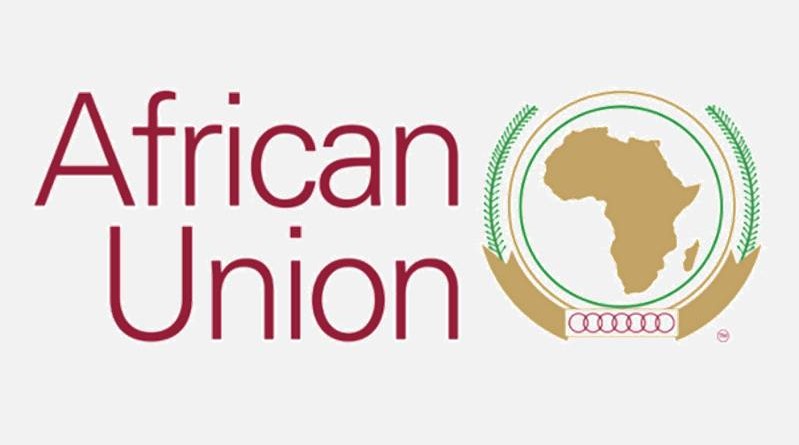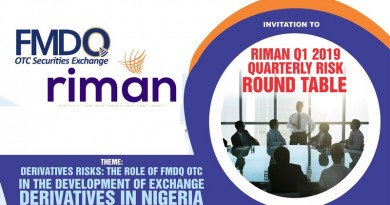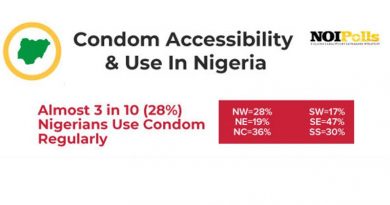African Union (AU) Commission launches first Africa Industrialization Week
The Department of Trade and Industry of the African Union Commission is organizing the inaugural Africa Industrialisation Week (AIW) under the theme “Promoting Regional Value Chains in Africa: A Pathway for Accelerating Africa’s Structural Transformation, Industrialization and Pharmaceutical Production”.
The event is being hosted in conjunction with the United Nations Industrial Development Organization (UNIDO) and other key stakeholders including a consortium of Development Cooperating Partners (DCPs). The principal objective of the Africa Industrialization Week is to raise global awareness regarding the industrialization challenges faced by the continent.
The AIW2018 aims to mobilize both African leaders and international organisations to advocate for the accelerated and sustainable as well as inclusive industrialisation of Africa. It also provides, among others, a public-private engagement dialogue platform that seeks to enhance the interface between the industrial policy makers, the private sector, civic society, and development cooperating partners.
While welcoming participants, Mrs. Aurelia Patrizia Calabro, the UNIDO Representative and Director of the Regional Hub in Ethiopia, pointed out that supporting local pharmaceutical production was recognised as a unique pathway that contributes to both improved health and the broader industrialisation agenda, with direct impact on inclusive and sustainable development. She also indicated that the development of regional value chains in Africa constitutes an invaluable means to improve local access to medicines and strong regional benefits.
She revealed that UNIDO will support Africa to address critical issues such as harmonizing local and regional regulations, integrating markets and creating a conducive business environment that will anchor the conditions for attraction of investment.
Addressing the Meeting, the Executive Director of the United Nations Programme on HIV and AIDS (UNAIDS), Mr. Michel Sidibé indicated that access to quality medicines is at the heart of the right to health for all and insisted that it is a prerequisite for universal health coverage. According to him, strengthening local pharmaceutical capabilities is essential for a healthier, stronger and richer Africa. He mentioned that 80% of the antiretroviral medicines to treat HIV are imported from outside Africa and underscored the risks inherent to this high dependency. However, Africa he said, is projected to be the fastest growing pharmaceutical market globally from $14 billion in 2017 to $22 billion by 2025.
He urged participants including Regional Economic Communities (RECs) to consider development of a regional pharmaceutical production capacity. In his statement, the Minister of Industry of Niger, H.E. Mr. Melam Zaneidou Amirou stressed that industrialization has always been a major preoccupation of development policy and the authorities of Niger have always realized that it is as important as agricultural development to achieve the country’s economic and social progress.
The Honorable Minister underlined the fact that on the economic front, the Government of Niger has implemented a series of reforms aiming at stabilizing the macroeconomic framework and improving the legislative and regulatory framework for investment and private entrepreneurship. He recognized that previous efforts to promote sustainable economic transformation in Africa have had mixed results, and suggested that a new approach is of necessary. He stated that it is crucial to establish a broad, country-specific process that leverages financial and non-financial resources, promotes regional integration and mobilizes cooperation among development partners in Africa.
During her intervention, the Minister of Trade, Industry and Tourism of Mauritania, H.E. Mrs. Khadidjetou M’Bareck Fall mentioned that industrialization is an indispensable vector of the diversification process and contributes to economic growth. According to her, without the structural transformation of African economies, Africa will not be able to achieve the expected sustainable development. She insisted that Africa must industrialize in a way that guarantees social integration and preserves the environment.
She defined the challenges that the government of Mauritania face in terms of industrialization and emphasized that industrialization requires collaboration between private sector and financial institutions. She informed the forum that the government of Mauritania has now elaborated a programme that will support existing economic platforms including the development of economic zones and new industrial parks.
In her high level statement, the Ministry of Trade and Industry of Ethiopia, H.E. Mrs. Fetlework Gebre-Egziabher indicated that the growing private sector in Africa, comprising innovators, producers and employers, presents the greatest opportunity for tackling poverty and unemployment. She recalled the theme of the forum and stated that it is not only timely but also highly pertinent as it holds the key for accelerated growth in the continent.
According to the Honorable Minister, the establishment of regional value chains is critical taking into account the low level of trade and productive integration that has the continent. Once regional value chains are established, she said, end products can be exported globally particularly to other developing markets and lay foundations for access to global value chains. Before she concluded, she informed the forum that Ethiopia is currently investing on more industrial parks and specialized industrial clusters. She assured the Meeting that Ethiopia stands ready to share its experience on the path to building Inclusive and Sustainable Industrial Development.
In his opening remarks, the Commissioner for Trade and Industry of the African Union Commission, H.E. Amb. Albert M. Muchanga, indicated that the commemoration of the Africa Industrialization Week is an economic activity that is key to Africa’s economic diversification and structural transformation. He pointed out that one key reason why the early efforts at promoting industrialization just after the independence of most African countries failed, was that there was more focus on import substitution industrialization anchored on importation of raw materials in many countries instead of export led industrialization.
The Commissioner recalled the theme of the forum and explained that the paradigm is shifting as Africa is now focused on the development of regional value chains that will supply a larger market space under the African Continental Free Trade Area (AfCFTA), in addition to using the regional value chains to more competitively link Africa to global value chains. He echoed the fact that through the development of regional value chains, industrialists will engage in cross border production of final and intermediate products to exploit large economies of scale offered by the AfCFTA.
Before he concluded, Commissioner Muchanga announced the organisation of the first Intra-African Trade Fair (IATF) from 11-17 December, 2018 in collaboration with Afreximbank and the Government of Egypt. He was delighted that preparations are going well and acknowledged that the IATF will bring together exhibitors from forty three countries from both Africa and the rest of the world.
SOURCE: AWOKO




